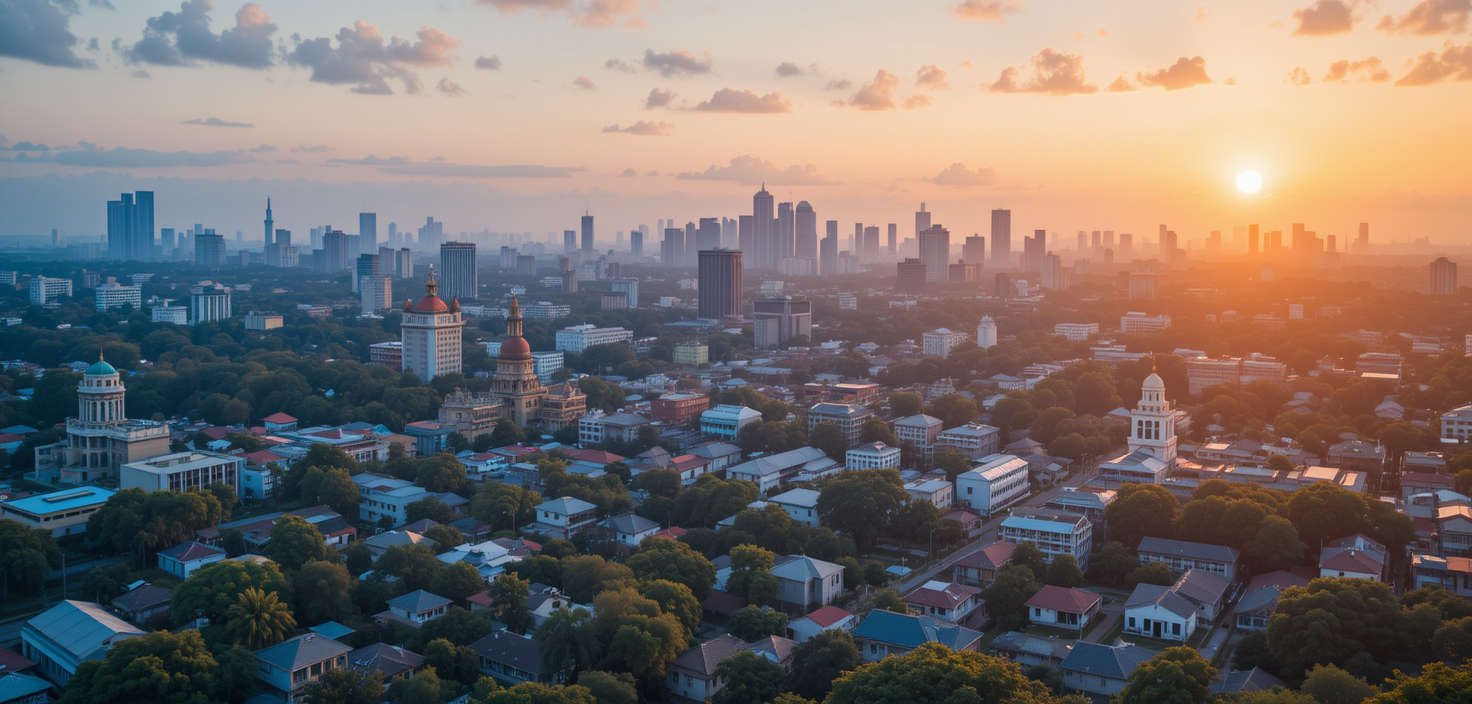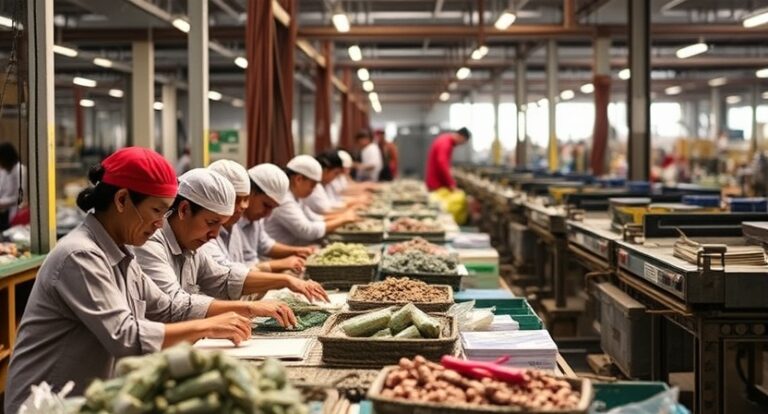The Rise of Cambodia’s Manufacturing Industry: Opportunities and Challenges
Cambodia, a rapidly developing nation in Southeast
Asia, is becoming an increasingly attractive destination for global manufacturers. Over the past decade, the country’s manufacturing industry has grown significantly, driven by favorable labor costs, strategic location, and an improving business environment. As global businesses seek alternatives to traditional manufacturing hubs like China,
Cambodia offers an emerging market with vast opportunities. However, this rise also brings several challenges that businesses must navigate. In this blog, we will explore the opportunities and challenges of Cambodia’s manufacturing industry and the role
Asia agents play in helping businesses succeed in this evolving market.
Opportunities in Cambodia’s Manufacturing Industry
1. Competitive Labor Costs and a Young Workforce
One of the key factors driving Cambodia’s rise as a manufacturing hub is its competitive labor costs. The country offers one of the lowest labor costs in Southeast
Asia, making it an attractive option for companies looking to lower production expenses. With wages significantly lower than in neighboring countries like Thailand and Vietnam, Cambodia offers manufacturers the opportunity to reduce operational costs while maintaining efficient production.
Additionally,
Cambodia’s youthful workforce is another advantage. With a median age of just 25 years, the country boasts a large pool of young, eager, and increasingly skilled laborers. Many young
Cambodians are entering industries like garment manufacturing, electronics assembly, and food processing, and the government is investing in education and vocational training to improve the skill set of workers further.
2. Access to Key Markets Through Strategic Location
Cambodia’s geographic location makes it an ideal gateway for businesses looking to access key markets in Asia. Located in the heart of Southeast
Asia, Cambodia shares borders with Thailand, Vietnam, and Laos, and is just a short distance from China. It has access to major international shipping lanes via its ports, particularly the Sihanoukville Port, which is vital for both exports and imports.
As a member of the ASEAN Economic Community (AEC), Cambodia benefits from lower tariffs and improved trade relations with neighboring ASEAN countries. This connectivity provides
manufacturers in Cambodia with easy access to regional markets, making it an ideal location for companies seeking to expand their presence in Asia and beyond.
3. Growing Manufacturing Sectors: Garments, Footwear, and Electronics
Cambodia has built a strong reputation in several key manufacturing sectors, most notably garments, textiles, and footwear. The garment industry, in particular, is one of the largest contributors to the country’s
export economy. Cambodia is one of the top exporters of garments to markets such as the United States and the European Union, thanks to its low production costs and preferential trade agreements like the EU’s Everything But Arms (EBA) initiative.
In addition to garments and textiles, Cambodia’s footwear manufacturing sector is growing rapidly. The country is home to a number of international footwear brands and is known for producing high-quality shoes at competitive prices. Electronics manufacturing is also gaining momentum, with several multinational companies setting up operations in Cambodia due to the country’s lower production costs and improving infrastructure.
4. Attractive Investment Incentives
The
Cambodian government has made significant efforts to attract foreign investment into the manufacturing sector. Through various incentives such as tax breaks, subsidies, and reduced tariffs, Cambodia is working hard to create a favorable business environment. The government also provides support for businesses looking to establish special economic zones (SEZs), which offer additional tax and customs incentives, creating a more cost-effective environment for
manufacturers.
Challenges Facing Cambodia’s Manufacturing Industry
1. Infrastructure Development Needs
While Cambodia’s infrastructure has improved in recent years, challenges remain, particularly in rural areas. Roads, logistics networks, and power supply still need to be upgraded to support the growing manufacturing industry. Many businesses in
Cambodia face delays in transportation due to poor road conditions or insufficient logistical infrastructure.
However, Cambodia has made significant progress, especially in cities like Phnom Penh and Sihanoukville, where new roads, ports, and airports are under development. The country’s government is actively working to address these gaps, making it an appealing market for international companies looking to enter the Southeast Asian manufacturing space.
2. Skills Gap and Labor Shortages
Despite a large and youthful workforce, Cambodia still faces challenges related to skills development. While the country’s labor force is growing, there remains a skills gap in certain industries, particularly in high-tech
manufacturing and advanced electronics. Many businesses rely on low-skilled labor, which can limit the country’s ability to expand into more complex industries.
To address this, Cambodia is investing heavily in education and vocational training. International companies can support this by partnering with local institutions and offering training programs to help bridge the skills gap.
3. Political Stability and Regulatory Environment
Cambodia’s political landscape, while relatively stable, has faced challenges in terms of governance, corruption, and legal enforcement. Foreign companies often express concerns over the unpredictability of regulations, land ownership issues, and the enforcement of contracts. However, Cambodia has made strides in improving its business environment, with efforts to streamline processes and attract foreign investors.
Businesses entering Cambodia should carefully research the legal and regulatory environment and consider working with local
Asia agents who can offer valuable insights into navigating these challenges. An experienced
Asia agent can guide foreign companies through the complexities of local regulations and ensure compliance with Cambodian laws.
4. Environmental Sustainability
As Cambodia’s manufacturing sector grows, environmental sustainability becomes an increasing concern. With industries like garment production and footwear manufacturing being resource-intensive, there are growing pressures to adopt sustainable practices. The
Cambodian government has started promoting green manufacturing and has committed to improving environmental standards, but progress is still in its early stages.
International businesses looking to establish operations in Cambodia should be proactive in implementing eco-friendly practices, such as waste reduction, energy efficiency, and responsible sourcing. This not only aligns with global sustainability goals but also ensures long-term viability in Cambodia’s
manufacturing landscape.
The Role of Asia Agents in Cambodia’s Manufacturing Landscape
As Cambodia’s manufacturing industry grows,
Asia agents play a crucial role in helping foreign companies navigate the market. These agents provide a range of services that streamline business operations and reduce the complexities of entering a new market.
An
Asia agent based in Cambodia can assist with sourcing reliable suppliers, negotiating contracts, ensuring product quality, managing logistics, and understanding local regulations. Working with a local agent can help businesses overcome language barriers, avoid costly mistakes, and ensure smoother entry into the Cambodian market.
Conclusion: Cambodia’s Promising Future in Manufacturing
Cambodia’s manufacturing industry has come a long way in a short period and is poised for continued growth. With its competitive labor costs, strategic location, and expanding
manufacturing sectors, Cambodia presents vast opportunities for international businesses. However, navigating the challenges of infrastructure, skills gaps, and regulatory complexities requires careful planning and local expertise.
For companies looking to tap into Cambodia’s rising manufacturing sector, partnering with an experienced
Asia agent can provide the support needed to successfully establish and grow operations. As Cambodia continues to improve its business environment and infrastructure, it is set to become an even more significant player in global manufacturing in the years to come

